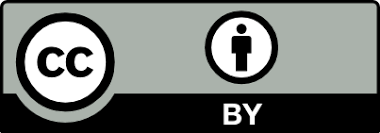AI Use in Criminal Matters as Permitted Under EU Law and as Needed to Safeguard the Essence of Fundamental Rights
DOI:
https://doi.org/10.54934/ijlcw.v1i1.15Keywords:
AI, criminal law, fundamental rightsAbstract
In this article we shall attempt to systematically chart the curent AI legislation, as well as the most important proposals for legislation at the level of the EU and to point the clashes and common ground with some of the major aspects present in criminal law that are linked with the protection of the essence of fundamental rights. The image of man as a natural prey to suggestion and influence has made some believe that artificial intelligence represents the proper solution for ensuring not only impartiality in a justice system, but also efficiency. This encouraged a relatively uncomplicated view on the AI applications that would facilitate the work of police and judicial authorities through identification, data management, facial recognition, crime prevention and risk assessment. Underpinning this reassuring hope is the concern for the protection of the essence of fundamental rights. Anchored in the practical examples arriving via the professional experience of magistrates, the use of AI can have adverse effects, undermining fundamental rights, such as the right to non-discrimination, the right to protection of personal data and to a private life, the right to freedom of expression, and the right to a fair trial given the increased risk of reproducing bias and perpetrating discrimination, not to mention the ability of criminals to make use of it for their own illegal purposes. Assumptions on the interaction of AI and the essence of fundamental rights start from the very nature of man and the structure of society and the EU legislator has tried to gather all of these essential elements under the roof of a limited number of policies and legislation instruments.
References
REFERENCES
C. Barabas, “Beyond Bias: Re-Imagining the Terms of ‘Ethical AI’ in Criminal Law (April 25, 2019)”, Chelsea Barabas, Beyond Bias: Re-imagining the Terms of "Ethical AI" in Criminal Law, 12 Geo. J. L. Mod. Critical Race Persp. 2 (2020)., Available at SSRN: https://ssrn.com/abstract=3377921 or http://dx.doi.org/10.2139/ssrn.3377921
“Charter of Fundamental Rights of the European Union.” Official Journal of the European Union C83, vol. 53, European Union, 2010, p. 380.
C. Dirican, “The impacts of robotics, artificial intelligence on business and economics”, Proced Soc Behav Sci 2015, no. 195, pp. 564-73.
R. Dremliuga, N. Prisekina, “The Concept of Culpability in Criminal Law and AI Systems”, Journal of Politics and Law, vol. 13, no. 256. 10.5539/jpl.v13n3p256.
P. A. Flach, “Machine Learning: The Art and Science of Algorithms That Make Sense of Data”, Cambridge University Press (Cambridge, 2012).
E., Fosch-Villaronga, S., van der Hof, C. Lutz et al., “Toy story or children story? Putting children and their rights at the forefront of the artificial intelligence revolution”, AI & Soc (2021). https://doi.org/10.1007/s00146-021-01295-w.
J.Frederik, B. Zuiderveen, “Strengthening legal protection against discrimination by algorithms and artificial intelligence”, The International Journal of Human Rights, 24:10, 1572-1593 (2020), DOI: 10.1080/13642987.2020.1743976.
D. Gervais, “Is Intellectual Property Law Ready for Artificial Intelligence?”, GRUR International, Volume 69, Issue 2, February 2020, Pages 117–118, https://doi.org/10.1093/grurint/ikz025.
S. Gless, “AI in the Courtroom: A Comparative Analysis of Machine Evidence in Criminal Trials (May 15, 2020)”, Georgetown Journal of International Law, Vol. 51, No. 2, Available at SSRN: https://ssrn.com/abstract=3602038
G. Guo, E.Kamar, V. J. Wortman, H. Wallach, M.R. Morris, “ Toward fairness in AI for people with disabilities SBG@a research roadmap”, SIGACCESS Access (2020).
G. Hallevy, "The Criminal Liability of Artificial Intelligence Entities - from Science Fiction to Legal Social Control," Akron Intellectual Property Journal, Vol. 4, Iss. 2, Article 1 (2010). Available at: https://ideaexchange.uakron.edu/akronintellectualproperty/vol4/iss2/1
D. Hojageldiyev, "Artificial Intelligence Opportunities for Environmental Protectio”, Paper presented at the SPE Gas & Oil Technology Showcase and Conference, Dubai, UAE (2019). doi: https://doi.org/10.2118/198616-MS
K. Ishii, “Comparative legal study on privacy and personal data protection for robots equipped with artificial intelligence: looking at functional and technological aspects”, AI & Soc 34, 509–533 (2019). https://doi.org/10.1007/s00146-017-0758-8
S. Kanuck, “Humor, Ethics, and Dignity: Being Human in the Age of Artificial Intelligence” , Ethics & International Affairs, 33(1), 3-12 (2019). doi:10.1017/S0892679418000928
A. Korinek, E. Stiglitz Joseph, "14. Artificial Intelligence and Its Implications for Income Distribution and Unemployment", The Economics of Artificial Intelligence: An Agenda, edited by Ajay Agrawal, Joshua Gans and Avi Goldfarb, Chicago: University of Chicago Press, pp. 349-390 (2019). https://doi.org/10.7208/9780226613475-016
F. Lagioia, G. Sartor, “AI Systems Under Criminal Law: a Legal Analysis and a Regulatory Perspective”, Philos. Technol, 33, 433–465 (2020). https://doi.org/10.1007/s13347-019-00362-x
S. Leavy, “Gender bias in artificial intelligence: The need for diversity and gender theory in machine learning”, Proceedings of the 40th International Conference on Software Engineering, Gothenburg, Sweden, 14–16 May/June 2018. Available at: https://dl.acm.org/citation.cfm?id=3195580 (accessed 19 november 2021).
D. Lima, “Could AI Agents Be Held Criminally Liable? Artificial Intelligence and the Challenges for Criminal Law”, South Carolina law review, 69. 2018.
M. Lippi, G. Contissa, F. Lagioia, “Consumer protection requires artificial intelligence”, Nat Mach Intell 1, 168–169 (2019). https://doi.org/10.1038/s42256-019-0042-3
E. Llansó, J. van Hoboken, P. Leersen, J. Harambam, “Artificial intelligence, content moderation, and freedom of expression”, Transatlantic Working Group on Content Moderation Online and Freedom of Expression (2020). https://www.ivir.nl/publicaties/download/AI-Llanso-Van-Hoboken-Feb-2020.pdf [accessed November 15, 2021).
E. D. Mihailis, “The Extended Corporate Mind: When Corporations Use AI to Break the Law”, 98 N.C. L. Rev., 893 (2020). Available at: https://scholarship.law.unc.edu/nclr/vol98/iss4/6
C. Muller, “The Impact of Artificial Intelligence on Human Rights, Democracy and the Rule of Law”, Ad Hoc Committee on Artificial Intelligence, Strasbourg, 24 June 2020, para. 75, available at: https://rm.coe.int/cahai-2020-06-fin-c-muller-the-impact-of-ai-on-human-rights-democracy-/16809ed6da.
U. Pagallo, S. Quattrocolo, "The impact of AI on criminal law, and its two fold procedures", In Research Handbook on the Law of Artificial Intelligence, Cheltenham, UK: Edward Elgar Publishing (UK, 2018). doi: https://doi.org/10.4337/9781786439055.00026
Proposal for a Regulation of the European Parliament and of the Council laying down harmonised rules on artificial intelligence (Artificial Intelligence Act) and amending certain Union legislative acts, Brussels, 29 November 2021.
A. Završnik (2020), “Criminal justice, artificial intelligence systems, and human rights”, ERA Forum 20, 567–583 (2020). https://doi.org/10.1007/s12027-020-00602-0
S. Vaithianathasamy, “AI vs AI: fraudsters turn defensive technology into an attack tool”, Computer Fraud & Security, Volume 2019, Issue 8, August 2019, Pages 6-8.
Downloads
Published
How to Cite
Issue
Section
License
Copyright (c) 2022 International Journal of Law in Changing World

This work is licensed under a Creative Commons Attribution 4.0 International License.















